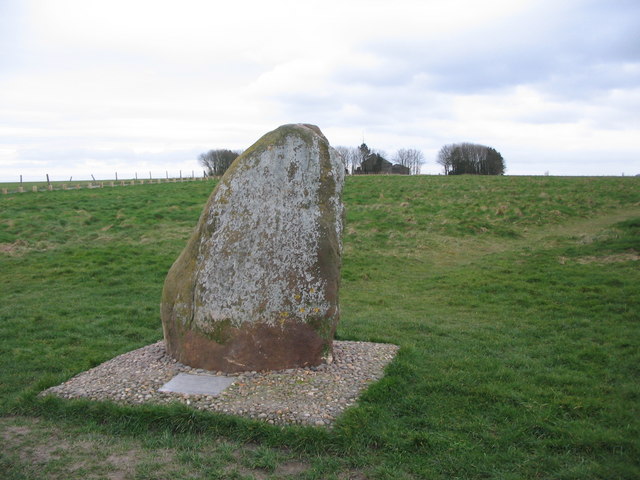Alfred v. Guthrum:
In 876 Alfred and the previous king, Aethelred, had arranged an uneasy peace with the Danish invaders. That peace was shattered when Guthrum was made the new Viking leader. Guthrum attacked first in Wareham and then again in Exeter, both times going against agreements the Danes made with Alfred. Although Alfred's forces ultimately managed to put a stop to the invasions, Guthrum attacked again two years later with much more success.
This time, Guthrum's forces attacked the town of Chippenham while Alfred was vacationing there. In spite of the mass slaughter indicated by the Anglo-Saxon Chronicle, Alfred somehow managed to escape with a small band of warriors. Their movements during the next several months are unknown, although many of the pastoral legends about King Alfred claim to take place during this time of defeat. Eventually Alfred settled in Athelney, where he fortified the area and then, according to the Anglo-Saxon Chronicle, "Þa on þære seofoðan wiecan ofer Eastron he gerad to Ecgbryhtes stane be eastan Sealwyda, him to com þær ongen Sumorsæte alle, Wilsætan, Hamtunscir se dęl, se hiere behinon sę was, his gefægene wærun" ("Then in the seventh week after Easter, he rode to Egbert's Stone, east of Selwood, and rallied all the men of Somerset, and of Wiltshire, and that part of Hampshire on this side of the sea, and they rejoiced.") The fact that Alfred was still able to draw and command forces from all over Wessex is a sign of the high admiration and faith with which is people viewed him.
Even with these reinforcements, Alfred's army was smaller than the Scandinavian army, but when the two fought "at Ethandun" (modern-day Edington), Alfred emerged victorious. How they managed to defeat the superior forces is not known, although it is tempting to attribute the victory to Alfred's ability as a commander. Alfred then drove the Scandinavian forces back to Chippenham, where they ultimately surrendered. As a part of the terms of surrender, Guthrum agreed to convert to Christianity. His baptism was presided over by Alfred and warfare between the two ended.

Battle of Ethandun Memorial Stone
Alfred v. Everyone After Guthrum:
Alfred's military troubles did not end with Guthrum. In 892 two other groups of Danish invaders landed in two separate settlements on the east of Alfred's kingdom, and while Alfred was involved in negotiations with Healfstan, the leader of the southern group, the northern one invaded farther inland. By this time Alfred was used to Viking treachery, and he had a separate army ready to pursue and ultimately defeat this group. Meanwhile, however, another group of Vikings invaded in the west, sieging an unnamed village as well as the already oft-struck Exeter. Alfred rushed to the defense and was successful in Exeter, ultimately forcing the Viking forces to retreat to Europe or to other parts of England.
There were several more minor Viking attacks in Wessex, but Alfred continued to grow and strengthen his kingdom's defenses and never suffered another crisis like the one at Chippenham. Most notably, he took note of the superior Viking ships and began a project to build stronger, faster ones which contributed to his last victory at the Isle of Wight.


